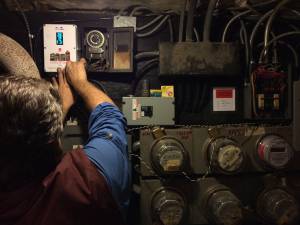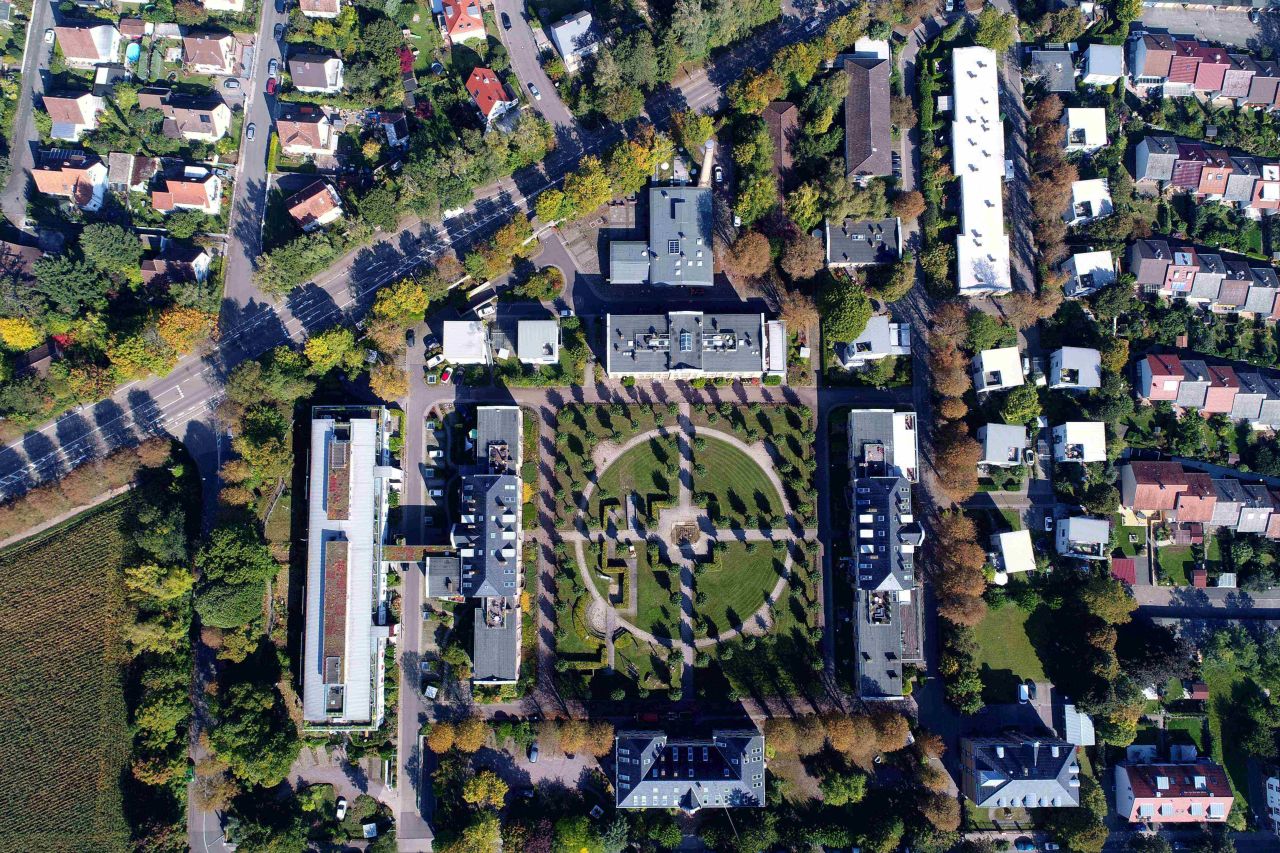Can intelligent market structures push the energy transition? Karlsruhe Institute of Technology (KIT), in cooperation with the technology company “LO3 Energy” and the local utility company “EnergieSüdwest AG,” has now started the “Landau Microgrid Project” (LAMP), a rather uncommon field test: Selected private households will test decentralized electricity trading as a model of the future energy market.
Responsible consumers appreciate regionally produced food and vegetables: Local structures are strengthened, no transportation is required. A research group headed by Professor Christof Weinhardt of the Institute of Information Systems and Marketing of KIT has now taken this idea as a starting point and pleads for the regional organization of energy markets as well: “We think that acceptance of renewable energies, i.e. the construction of wind turbines, solar collectors, and cogeneration plants, will increase, if local population is integrated into energy trading.” According to Weinhardt’s concept, private persons, institutions or companies are not only to produce electricity with their own solar systems, but also to sell the power afterwards. Inhabitants of a village may purchase the power produced by solar collectors on the roof of their church or gym and, in this way, will not only support the energy turnaround, but also community life. “A decentralized grid structure and local electricity trading have a number of advantages,” Weinhardt says. “Costs can be reduced, as no transportation of the electricity is required. The local grid also is much more resilient to malfunctions or terrorist attacks. Moreover, controversial extension of power lines can be reduced.”
Soon, up to twenty private households in Landau will form an electricity market of their own and trade electricity in order to test whether such regional electricity markets work in practice. “For the first time, end consumers in Germany will decide on where their electricity comes from” says business engineer Esther Marie Mengelkamp, who manages the KIT project. “So far, grid operators have decided on the type of power transmitted. For a green electricity tariff, water power plants in Scandinavia have often been certified, whereas local electricity is produced by the next nuclear or coal-fired power plant.” The trading platform is based on block chain technology, as a result of which the origin and owners of the energy available can be identified clearly at any point of time. The expenditure of the participants in the simulation remains moderate. First, a smart meter will be installed. Then, a mobile end device will be used to configure from where electricity is to be purchased or at what price own power is to be sold. Then, trading works fully automatically until own preferences are changed.

installed in the households. (Photo: LO3 Energy)
The field test is based on a similar experiment of the project partner “LO3 Energy” in the USA. The “Brooklyn Micgrogrid” in New York already implemented private electricity trading in 2016. As in Brooklyn, the participating households in Landau will be equipped with a smart meter by “LO3 Energy” that also developed the trading platform. But for the first time, the project partner “EnergieSüdwest AG” will make a closed grid infrastructure available for the field test. Market simulation in the power grid of the regional utility company will take place in the Lazarettgarten district of the city of Landau. “The energy transition is a mammoth task,” says Dr. Thomas Waßmuth of EnergieSüdwest AG, who supports implementation of the research project. “We want to provide our customers with the opportunity to participate.”
From the data generated by the participants, the KIT scientists, upon the completion of LAMP, will know in detail how much current was consumed and traded in the Landau Microgrid Project and how the electricity prize developed. Then, it is planned to analyze, adapt, and further develop the tested market model. “Future energy markets are subject to many uncertainties,” Weinhardt says and refers to the potential discontinuation of guaranteed feed-in remuneration for renewable energies. “We have to make these market simulations now in order to shape the markets for the future.” Another field test is currently being prepared by “LO3 Energy” in cooperation with the “Allgäuer Überlandwerk” (AÜW) in Kempten. Both projects are closely coordinated. The project findings will be exchanged in order to enable mutual learning.
More information:
http://im.iism.kit.edu/english/1093_2058.php
More about the KIT Energy Center: http://www.energy.kit.edu
In close partnership with society, KIT develops solutions for urgent challenges – from climate change, energy transition and sustainable use of natural resources to artificial intelligence, sovereignty and an aging population. As The University in the Helmholtz Association, KIT unites scientific excellence from insight to application-driven research under one roof – and is thus in a unique position to drive this transformation. As a University of Excellence, KIT offers its more than 10,000 employees and 22,800 students outstanding opportunities to shape a sustainable and resilient future. KIT – Science for Impact.

